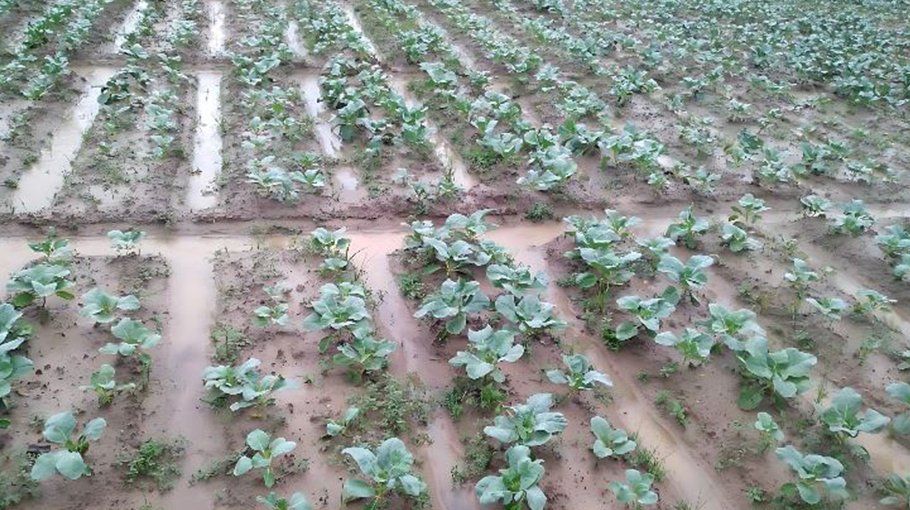Heavy rain hampers vegetable farming in Ishwardi

Vegetable farmers in Ishwardi upazila of Pabna cannot start farming the winter vegetables due to the recent excessive rainfall. Although they were supposed start planting the seedlings in mid-October, they were not able to do so as the vegetable fields are still soft and muddy.
They also suffered losses in the vegetables they cultivate during July and August. Due to excessive rain, waterlogging occurred in the fields, which destroyed most of the vegetable fields.
Due to the extreme heat from March to July of this year, there was hardly any rain in Ishwardi. However, the entire month of September saw continuous rainfall. According to the Ishwardi Weather Observatory, 492.5 millimeters of rainfall was recorded in Ishwardi in September.
Meanwhile, seedbeds of winter vegetables in various areas of the upazila were damaged due to excessive rainfall. In addition, farmers have suffered losses as most of the early bean crops on 250 hectares of land in the Baghasla, Sheikhpara, Goalbathan, and Muladuli Madhyapara areas of Muladuli Union were ruined.
Sources from Upazila Department of Agricultural Extension said this year, the target for cultivating various types of winter vegetables was set at 6,082 hectares of land in the upazila and municipal areas. The target for vegetable production was set at 158,314 metric tonnes. However, due to the current situation in the fields, officials from the local agriculture department are concerned about whether the target will be met.
It was learnt that Ishwardi upazila is renowned in the country for its vegetable cultivation. More than 15 farmers from here received national awards for their success in Agriculture. A wide variety of crops grows in large amount in the area, including beans, okra, radish, carrots, eggplant, cauliflower, cabbage, tomatoes, coriander leaves, gourds, pumpkins, red spinach, spinach, Malabar spinach, long beans, papaya, and ridge gourd. Salimpur, Muladuli, Sahapur, and Pakshi unions are the most prominent for vegetable cultivation. The Rabi season begins in October, and this is typically a busy time for farmers to prepare for planting. However, they are unable to plant vegetable seedlings due to the unsuitable condition of their filed.
Farmer Imran Hossain from Ista village of the municipality area said he cultivates rice, lentils, and khesari every year on his four bighas of land, along with vegetables. This year, he prepared seedbeds to grow vegetable seedlings. However, due to excessive rainfall, the seedbeds were damaged and the land is still not suitable for planting vegetable seedlings. As a result, he could not start his work at the field. Because of the continuous rain throughout the month, the soil in the fields remains soft and muddy. It will take a few more days for the soil to become suitable for planting.
Abdul Bari, a national award-winning farmer from Salimpur, said that this year's heavy rains caused significant damage to vegetable crops. Not only in Ishwardi, but in other districts and upazilas across the country, vegetable fields were inundated due to rain and floods. Abdul Bari earned a reputation for cultivating flowers, cabbages, and cauliflowers for many years, and received a national award for his achievements. He mentioned that during this time, his cauliflowers and cabbages would typically grow well, but this year, due to excessive rain, the condition of his 12 bighas of fields is not good. Although some cauliflowers are growing, they are small and pale in appearance. We farmers are not doing very well, he said.
Ishwardi Upazila Agriculture Officer Mita Sarkar said a large amount of vegetables is produced in Ishwardi. This year, the target has been set to cultivate winter vegetables on 6,082 hectares of land, aiming to produce 158,314 metric tons. However, due to the excessive rainfall, the vegetable fields have not yet become suitable for planting, and it is uncertain at this moment whether the target will be achieved.



